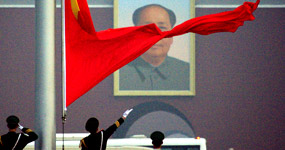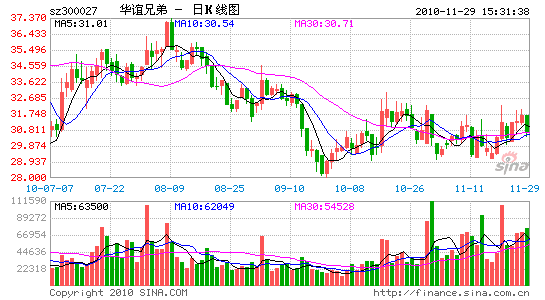
中国财政部自今年1月1日起,开始对以前属于非流通股的股票出售所得征收20%的个人所得税。自中国开始股票交易之初,非流通股就代表政府权属和对大多数上市公司的控制。个人所得税影响的主要是那些在国有企业改革后获得这些公司的大量股票并第一次将其卖出的股票持有者。
如今这则貌似技术性的中文声明让个人所得税的征收范围更加明确。声明详细说明了这项税收适用的限售股为个人从机构或其他个人受让的未解禁限售股、个人因依法继承及因上市公司合并、原被合并方公司限售股所转换的股份。这份说明似乎足以吓到投资者并引发股票抛售。
眼下中国国内经济增长放缓,通货膨胀水平不断升高,全球经济疲软,在这个节骨眼上,很难想象北京会试图故意打压本月已累计下跌超过6%的股市,而股市的下跌缘于中国大幅收紧信贷和货币政策。然而若再考虑到前不久中国决定提高购买特定车型的购置税并增加个人带外国商品的入境关税,那么这份声明的言外之意的确是在说,中国政府越来越迫不及待地希望寻找新的财政收入来源。
不仅如此,外界还一直盛传中国政府可能会征收某种房产税。语焉不详的征税计划曾在一开始被解读为对抗中国顽固不化的房地产泡沫的最后一招,但越来越多的投资者开始相信,中国政府是因为可卖给开发商的土地量正在日益减少,才考虑利用征税作为补偿。
表面上来看,中国的财政状况十分坚挺。财政赤字规模属温和范围,持有外汇储备量居世界第一。但是,鉴于北京方面启动的4万亿元大力投资基础设施建设的刺激计划产出的回报很低并且要花很长时间,人们的担忧开始加剧,担心中国的财政在未来几年会面临越来越大的压力。
对财政状况恶化的预期因大肆宣传的十二五规划而进一步加强,十二五规划旨在实现"更健康"及更平衡的经济增长,部分通过改革中国不完善的社会福利体系和对清洁能源等新产业的大量投资。
与此同时,中国银行业已处于超负荷、易发风险的状态,地方政府融资平台难以控制,县级政府实际上濒于破产,外界对此的担忧也有增无减。
为了解决上述部分问题,中国一些智库和学术机构提倡明年大力发放地方政府债券。这也是中国在上调基准利率和收紧银行信贷的同时仍坚持宽松财政政策的一个原因。
一定程度的融资具有经济意义,但最近的财政措施大部分是针对普通纳税人,而给了企业自由通行证,尤其是那些国有企业。如果此种趋势持续下去,那么就会造成一种印象,即这是一个试图从普通大众手中获取现金和资源的政府,对一个本应更依赖于私人部门的消费和技术创新的经济来说,很难说这是一个明智之举。
Shen Hong / Horatio Fu
However, the panic and puzzlement the statement has generated goes far beyond equities investment and to some extent betrays the growing fiscal stress Beijing faces as it reshapes a fast-expanding economy and addresses some of the short-term woes on its balance sheet.
Starting on January 1 of this year, the Ministry of Finance began levying a 20% capital gains tax on profit from sales of shares that were once non-tradable stock--a class of shares that from the early days of stock trading in China represented government ownership and control over most publicly traded companies. The tax primarily affects holders of large corporate stakes who acquired the stock following reforms to the state-owned sector yes and are selling it for the first time.
Today's technical-looking statement ( in Chinese) made the scope of the tax much clearer, specifying that it applies to profit from the sale of this special category of shares between individuals and institutions, the inheritance of such shares and share transfers as a result of an acquisition by a listed company. The clarification appeared to spook investors enough to trigger the sell-off.
At a time of slowing domestic growth, rising inflation and a weakening global economy, it's hard to imagine Beijing would deliberately try to depress a local stock market that has already fallen more than 6% this month due to aggressive credit and monetary tightening. But, taken together with recent decisions to raise taxes on certain types of car purchases and reinforce tariffs on foreign goods brought into China by individuals, the statement does suggest that the government is growing desperate in its search for fresh fiscal revenue sources.
That perception is only reinforced by incessant chatter about the government possibly imposing some kind of real estate tax. The vague tax proposal had initially been interpreted as a last resort in tackling the country's stubborn property bubble, but more and more investors have started to believe Beijing is considering the new tax to compensate for dwindling supplies of land it can sell off to developers.
On the surface, China's fiscal position is strong. The country is running just a mild budget deficit and boasts the world's biggest foreign exchange reserves. But with the various infrastructure projects Beijing has embarked on via a 4 trillion-yuan stimulus package likely to produce lowâ 'and slow--returns, concerns are growing that the country's finances will come under increasing pressure in the coming years.
Reinforcing expectations of fiscal pain to come is Beijing's well-broadcast 12th five-year plan, which aims to realize 'healthier' and more balanced economic growth, partly through an overhaul of the nation's underdeveloped social welfare system and massive investment in new industries like clean energy.
At the same time, there are unabated worries about China's overburdened and risk-prone banking sector, wayward local government financing platforms and virtually bankrupt county-level governments.
In order to fix some of these problems, a few think tanks and academics in China have called for significantly boosting the issuance of local government debt next year. This is one reason why China has hiked benchmark interest rates and tightened bank credit while still remaining committed to an expansionary fiscal policy.
While a certain level of fund-raising makes economic sense, the latest fiscal measures have mostly targeted ordinary tax-payers while giving a free pass to corporations--especially those owned by the state. If such a trend continues, it can only buttress Beijing's image as a government trying to grab cash and resources from the men and women on the streetâ 'hardly a wise tack for an economy that is supposedly trying to rely more on private consumption and technical innovation.
Shen Hong / Horatio Fu









